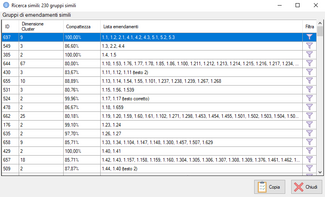- ImpactWe help parliaments to become greener and to implement the Paris agreement.We support democracy by strengthening parliamentsWe work to increase women’s representation in parliament and empower women MPs.We defend the human rights of parliamentarians and help them uphold the rights of all.We help parliaments fight terrorism, cyber warfare and the proliferation of weapons of mass destruction.We encourage youth participation in parliaments and empower young MPs.We support parliaments in implementing the SDGs with a particular focus on health and climate change.
- ParliamentsNearly every country in the world has some form of parliament. Parliamentary systems fall into two categories: bicameral and unicameral. Out of 190 national parliaments in the world, 78 are bicameral (156 chambers) and 112 are unicameral, making a total of 268 chambers of parliament with some 44,000 members of parliament. IPU membership is made up of 180 national parliaments
Find a national parliament
We help strengthen parliaments to make them more representative and effective.. - EventsVirtual eventThe International Court of Justice (ICJ) was constituted under the United Nations Charter to help nations settle disputes peacefully in accordance with international law.
- Knowledge
Discover the IPU's resources
Our library of essential resources for parliamentsGlobal data for and about national parliamentsLatest data and reports about women in parliamentResolutions, declarations and outcomes adopted by IPU MembersRecent innovations in the way parliaments workThe latest climate change legislation from the London School of Economics' database
How AI helps the Italian Senate manage amendments

Senate clerks use “Gestore Emendamenti” (GEM), an amendment management system. The table above shows similarity clusters for a group of amendments
In the Italian Senate, amendments are presented electronically, but not always for the purpose of changing proposed legislation. Often, members – particularly those from opposition parties – propose amendments as a way to advertise alternative policies or to challenge the government. In extreme cases, they may present large numbers of amendments, differing by just a few words, in order to slow down the legislative process – a practice known as “filibustering”. This can prove challenging for the Senate staff responsible for analysing and organizing amendments and scheduling voting.
How AI assists
The IT department has developed various document management and automation tools for Senate staff. A new AI-powered system for managing amendments was introduced as part of an experiment to handle workload peaks, such as those caused by filibustering. This system, which uses “text clustering algorithms”, speeds up the detection of groups of similarly worded amendments.
This experimental feature is already demonstrating its value. According to Carlo Marchetti, Head of the Senate’s Information Systems Development Office, the process is almost instant. But a human eye is still needed to review, approve, modify and integrate the system’s results. No decisions are taken without supervision. In this sense, the AI technology is there to assist human beings, not to replace them.
What's next
The Senate developed this feature in collaboration with the Institute of Legal Informatics and Judicial Systems, which is part of the National Research Council of Italy (CNR). More technical information about the clustering algorithms, and how they are integrated into the Senate systems, can be found




